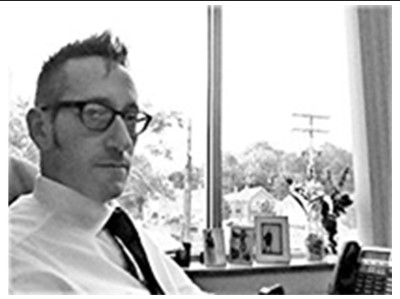By Michael Davidow, Radio Free New Hampshire
News item: Roald Dahl’s publishers have decided to change his language to better suit modern sensibilities. People in his books will no longer be called “fat,” for instance. The term “mothers and fathers” will be replaced by the word “parents” (at least they won’t be fat parents). And witches will be made less loathsome.
I’m of two minds about this, against and very against. To start with the simpler side, the “very against” part of me just feels sick, the same way it feels when Marjorie Taylor Greene rails against drag queens. A government’s job is to regulate how people act, not how they think, and to do so in generally acceptable ways for generally sound reasons, but both the right and the left of this country have become unsatisfied with that business. The prospect of allowing people to sin used to be considered part of being free. Now it’s something to fight.
The “against” part of me, anyway, is more sensible and even capable of subtlety. While it dislikes prudishness in general, privileges the work of an author against that of any editor (sorry, Nancy West!), and questions the demands of commerce, it can also acknowledge the cost of allowing Dahl to remain unchanged. He was a nasty man, a hater of blacks and Jews, whose works often reflected his ugliest ideas. I suppose if and when kids run across those things in his stories, they’ll be bothered by them. But therein lies another source of value.
I’ve read many books in my life and the percentage that I remember is startlingly small. One that has always stuck with me, though, is the tale of Hans Brinker. I read it in the fourth grade. I thrilled at Hans’s skating acumen; I liked his cute sister; I was horrified by the bizarre nature of his father’s illness (he had fallen off a roof and become an insensible idiot); I was captivated by the whole foreign scene, including the drawing on the cover of some smiling blonde kid on a frozen canal. And I was brought up short when the narrator spoke of Hans and his friends skating past the Jewish section of town. I can’t remember if they threw rocks or if they just spewed hatred. But either way, there it was, in a book presented to me as a classic: pure anti-Semitism, and nobody blinked an eye.
I had never run across it before, at least in such a straightforward way. But I have certainly seen it plenty of times since. It shows up in Hemingway, it shows up in Fitzgerald, it shows up in Dickens, it shows up in Shakespeare. It shows up in the New Testament itself, cutting its scar so deeply into the trunk of our culture that it’s almost impossible to imagine the Western World ever lacking it. It shows up in history, in other words. But I do still remember reading about Hans, and liking him, and wanting him to win his race; and I do still remember wondering why he hated me, and how chilled I felt in that classroom when I read that book.
Had they changed that story to reflect better times, I doubt I would remember it at all. It would have been just another story about a kid winning a race (with an idiot father who had fallen from a roof). It would not have led me into the wider world at all.
Perhaps the argument for altering Dahl lies elsewhere, then: that we can make things better for everyone by removing a source of pain for a few. Once you start to erase history, though, it’s hard to stop. Ask Marjorie Taylor Greene about that: she is trying to erase not only the January 6th insurrection, but also the Civil War, and I don’t hear any progressives saying that doing so will help eliminate either racism or fascism.
Nothing stops somebody new from writing his or her own story, though, in which child skaters do not hate Jews and idiot fathers get cured by national health insurance. Maybe such a book would even sell, and after all, making a buck is the most important thing here. Dahl’s publishers are afraid that people will stop buying his books if they offend today’s readers too much, so to keep that cash flowing, their man’s words (and thoughts) need to be changed. An entire generation will now be able to grow up safely assuming that Oompa-Loompas are not problematic; that witches are not scary and strange; that parents are never cruel to their children. I wish this generation the best, but I also have to warn them. Stay away from the edge of that roof.
Davidow writes Radio Free New Hampshire for InDepthNH.org. He is also the author of Gate City, Split Thirty, and The Rocketdyne Commission, three novels about politics and advertising which, taken together, form The Henry Bell Project, The Book of Order, and The Hunter of Talyashevka . They are available on Amazon and Barnes and Noble. Davidow’s Chanukah Land can be found here.





